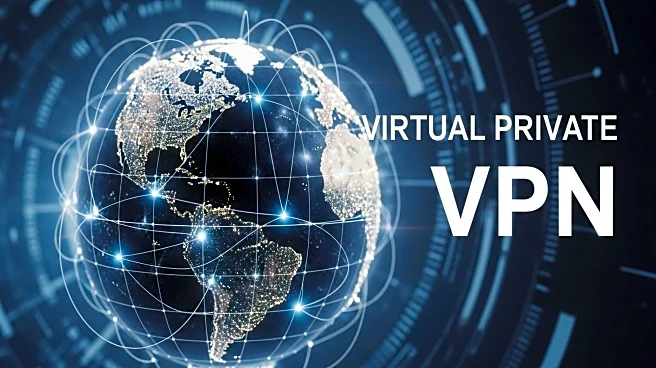What's Happening?
Digital nomads, individuals who leverage technology to work remotely while traveling, often face significant challenges due to internet censorship in various regions. Countries like China and the UAE impose strict government censorship, blocking access to social media platforms, news sites, and messaging apps. This restricts what citizens and digital nomads can access online, making VPNs a crucial tool for bypassing these limitations. VPNs allow users to change their IP address, effectively masking their location and enabling access to censored content. This technology not only helps in overcoming geographic censorship but also enhances privacy by concealing users' true locations from advertisers and tracking companies.
Why It's Important?
The ability to bypass internet censorship is vital for digital nomads who rely on unrestricted access to global content for their work. VPNs provide a solution by allowing users to appear as if they are connecting from different locations, thus accessing content that may be blocked in their current region. This is particularly important in countries with stringent internet regulations, where access to information is heavily controlled. By using VPNs, digital nomads can maintain their productivity and access necessary resources without being hindered by local censorship laws. Additionally, VPNs offer privacy benefits, protecting users from targeted attacks and data breaches.
What's Next?
As internet censorship continues to evolve, the demand for VPN services is likely to increase among digital nomads and other internet users seeking unrestricted access to information. VPN providers may continue to enhance their offerings, focusing on features like no-log policies and faster connection speeds to attract more users. Governments may also respond by implementing stricter regulations on VPN usage, potentially leading to legal challenges and debates over internet freedom. Digital nomads will need to stay informed about these developments to ensure they can continue to work effectively while traveling.
Beyond the Headlines
The growing reliance on VPNs highlights broader issues of internet freedom and privacy. As governments worldwide increasingly regulate online content, the debate over digital rights and access to information becomes more pressing. VPNs serve as a tool for individuals to assert their right to privacy and unrestricted access to information, raising ethical questions about the balance between security and freedom. This trend may lead to long-term shifts in how internet services are provided and consumed, with potential implications for global connectivity and digital equity.











